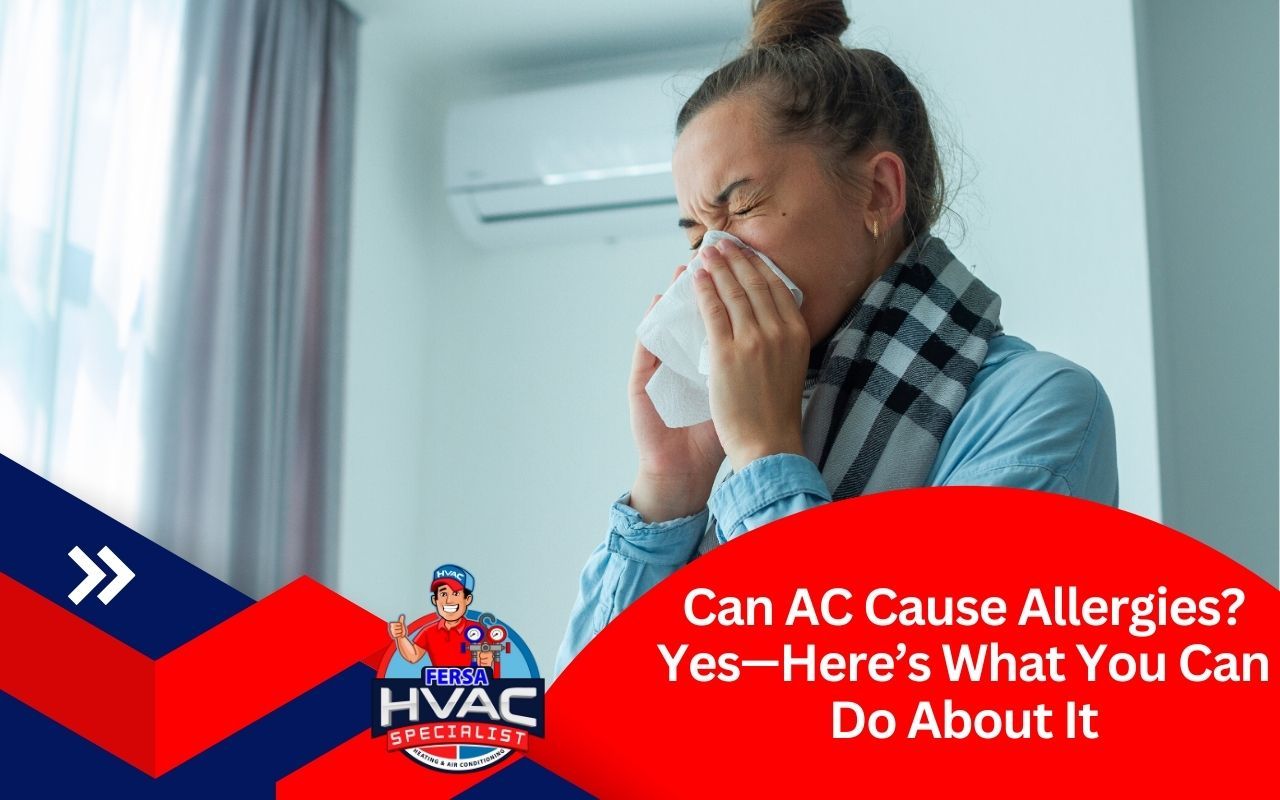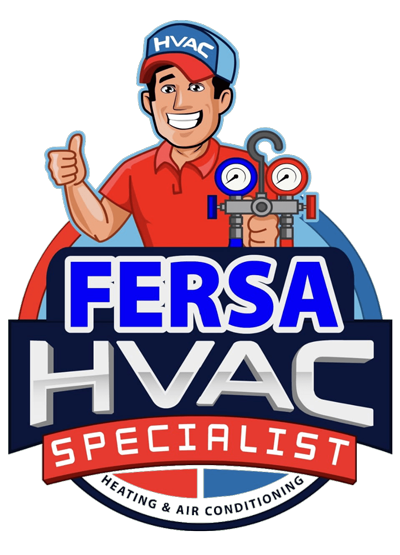
Can AC Cause Allergies? Yes—Here’s What You Can Do About It
If you’re sneezing more at home or waking up with itchy eyes, your air conditioner might be part of the problem. So, can AC cause allergies? The answer is yes—but it doesn’t have to.
At FERSA HVAC Heating & Air, we help Texas homeowners figure out what’s in their air, how to fix it, and whether cleaning or replacing your system is the right move.
How Your AC Could Be Making Allergies Worse
Your AC isn’t the source of allergens, but it can spread them if the system isn’t maintained. Dust, pollen, mold, pet dander, and bacteria can build up inside your unit and ductwork. When your system turns on, it pushes those particles through your vents and into the air you breathe.
Here’s how your AC can make allergies worse:
Dirty air filters allow allergens like dust and pollen to pass through your system and circulate through your home. Over time, moisture from condensation can cause mold to grow in the drip pan, coils, or even inside the ductwork—especially if it’s not cleaned regularly. Dust buildup in ducts can carry pet dander, bacteria, and other irritants. High humidity levels also create the perfect environment for mold to thrive, making symptoms even worse. On top of that, poor ventilation or weak airflow means stale, allergen-filled air isn’t properly filtered or refreshed. These issues can trigger or worsen allergy symptoms until they’re addressed.
How to Reduce Allergies Caused by Your AC
You don’t need to ditch your AC—you just need to clean it up and maintain it.
Here’s what helps:
- Change your filters every 1–3 months (use HEPA filters for best results)
- Schedule professional HVAC cleanings yearly
- Clean your vents and returns with a vacuum
- Seal leaky ducts that may pull in dust and insulation
- Consider adding UV lights or air purifiers to your HVAC system
Our team offers indoor air quality solutions that work with your existing system—or we can upgrade your setup for better results.
When to Repair vs. Replace Your AC System
Sometimes, your system is just old and full of buildup that cleaning won’t fix. If your allergies are getting worse and your system is:
- More than 10–12 years old
- Smells musty or moldy
- Still using outdated filters
- Blowing weak or dusty air
…it might be time to consider a replacement.
Modern HVAC systems have built-in air quality features and better filtration. Check out our AC replacement vs. repair guide to see what fits your home.
FAQs – AC and Allergies
Can my AC filter cause allergy symptoms?
Yes. If it’s dirty or low-quality, it won’t trap allergens. Upgrade to a HEPA filter or call us to recommend the right one.
Does AC reduce allergens or make them worse?
A well-maintained AC system can help filter out allergens. A dirty one can circulate them. Maintenance is key.
Can a new AC help with allergies?
Absolutely. Newer systems have better filtration, humidity control, and cleaner operation—which all help reduce allergens indoors.
Breathe Easier with FERSA HVAC Air Quality Solutions
If you’re wondering, can AC cause allergies, the answer depends on how well your system is maintained. Let FERSA HVAC Heating & Air help clean up your air and keep your home comfortable.
